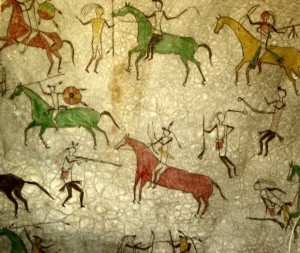What it is about the diet of the hunter gatherers, known as the ‘primal diet’ that maintains the correct body weight?
Is it that they don’t eat that much, because of reduced food availability? Is it something to do with the quality of the diet, more than the quantity? Could a primal diet based on meat, fish, nuts, fruit and vegetables have hormonal and metabolic effects that help protect against obesity? Is it possible that, for instance, that the type of food eaten in a primitive diet satisfies hunger more effectively and prevents overeating?
Many sugary and starchy Western foods unbalance blood sugar levels, and may trigger false hunger and food cravings due to sugar highs and lows. More primitive diets are more stabilising to blood sugar, and may be less likely to cause cravings associated with poor blood sugar management.
Primitive diets may offer relatively more protein than Western diets, and protein has been found to offer more appetite-sating potential than carbohydrate.
Some hunger and food seeking behaviour may be the result of relative deficiencies in key brain chemicals including serotonin and endorphins. Brain chemicals such as these are made from amino acids, found in a protein-rich diet. These and other issues are explored comprehensively in the recently-updated The Diet Cure by Julia Ross.
Primitive and primal diets are generally devoid of ‘rewarding’ foods that can drive overeating. . A primitive diet will also be devoid of foods that have been deliberately manufactured to make you eat more of them.
Adapted from Dr John Briffa

